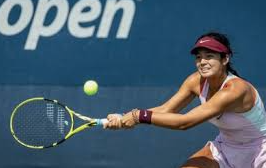A favourite piece of graffiti of a previous generation said, “Jesus saves” after which a wise crack had added “And Messi nets the rebound”. But then another similar piece of graffiti stated that “Jesus is the answer” to which someone else had added, “It depends what the question is”. We might be drawn to such thoughts when we consider the question posed in the title of this article: Is sport the answer? The question is: what is the question to which it is the answer?
The question was put at a NASH Conference recently, that, with over seventy percent of pupils in this country not gaining enough passes to go on to A level, is sport the answer to their plight? Sport can indeed provide the answer to the question, initially not in the way we might expect. When it comes to soccer, we may be able to pass the ball hundreds of times (Manchester City on occasions did it over one thousand times) but that is not the point; when Leicester City won the English Premier League they came eighteenth in the league for the number of passes. The game involves not just passes but also intercepts, running off the ball, tackling, shooting, controlling, supporting, all with a goal in mind. The pass rate is actually of little consequence.
The obvious point is not the pass rate but the goal – and that is what we should be looking for when it comes to our young people. So how can sport help youngsters achieve the real goal? The real goal is the whole person, the all-round being, the child’s character. Firstly, and most obviously sport improves the youngsters’ fitness which in turn will help them cope not just with physical health problems but also with mental health issues. Physical fitness helps mental fitness, which will enable them to handle difficult situations. That develops character.
Secondly, sport plays a huge part in developing the necessary twenty-first century learning skills, which in turn will help them in the classroom and in the workplace. Playing sport, and in particular within competitive situations in team sports, gives them opportunities to use critical thinking, to apply creativity, to develop communication and to understand collaboration, all of which serve to instil the depth of character that will attract further opportunities. Developing those five Cs is far more important than gaining 5 As.
Thirdly, sport develops life skills that are far more important than academic knowledge. Playing sport against others prepares youngsters for the competitive world that exists beyond the world of the classroom; they have to learn to win and to lose, to face the ups and the downs. They do not learn that in a book. Playing sport against others provides opportunities for youngsters to discover and develop commitment which will be necessary in that competitive world; they cannot just wait for others to provide them with what they want.
Fourthly, sport develops the need to understand the importance of values in everything that is done in this life. It also reveals the need for compassion, humility, dignity, integrity. It underlines the need for respect, responsibility and equity. Indeed, we must understand that Zimbabwe must not do well in sport but rather that we must do sport well (in other words, according to values) in Zimbabwe – and that way Zimbabwe will do well in sport. Sport teaches values, not least in the public eye.
Fifthly, sport unquestionably opens up numerous career opportunities, not just in playing at different levels but in coaching and officiating as well as in physiotherapy and psychology, not to mention journalism and photography, technology and analysis. Sport can take youngsters far.
Lastly, sport parallels life, where passing is not everything by any means. As with soccer, so in life, pupils must learn to tackle (to deal with problems themselves), intercept (that is, avoid situations arising), run off the ball (serve the community), shoot (try again with perseverance), control (not the ball but emotions), clear (the mind of dangerous thoughts) and support (by encouraging others).
Khang Kijarro Nguyen has said that “Statistics do not measure an athlete’s hunger”; Chris Hart has said “all the statistics in the world cannot measure the warmth of a smile.” Forget pass rates; they are not what really counts. Sport can save our youngsters with no need for the rebound. Let us play.




